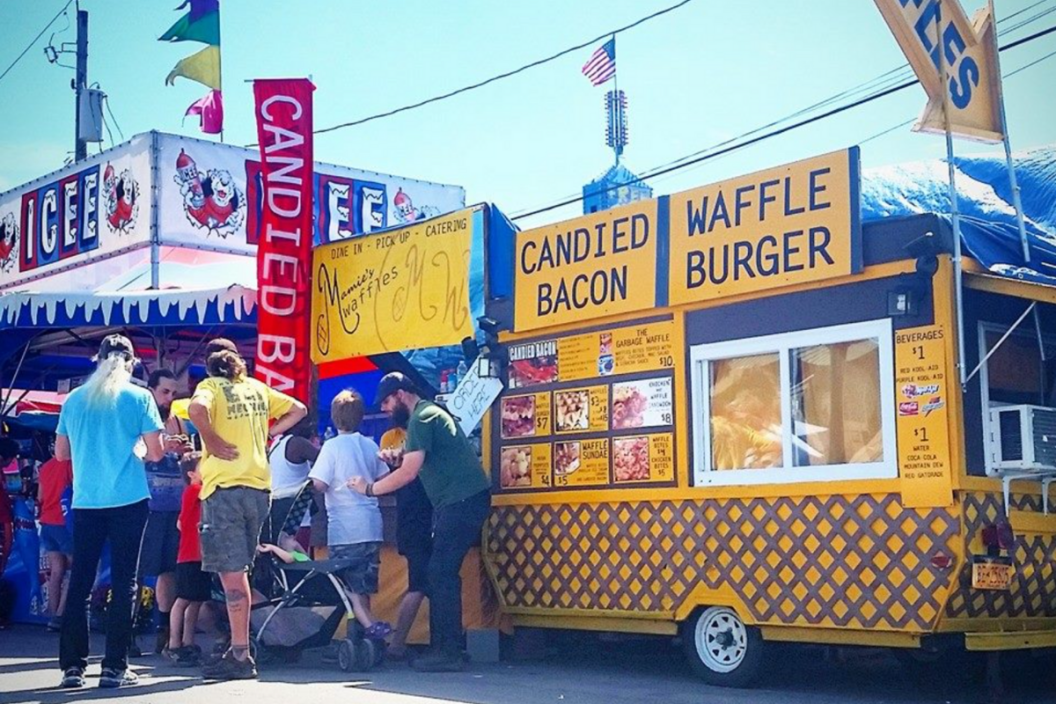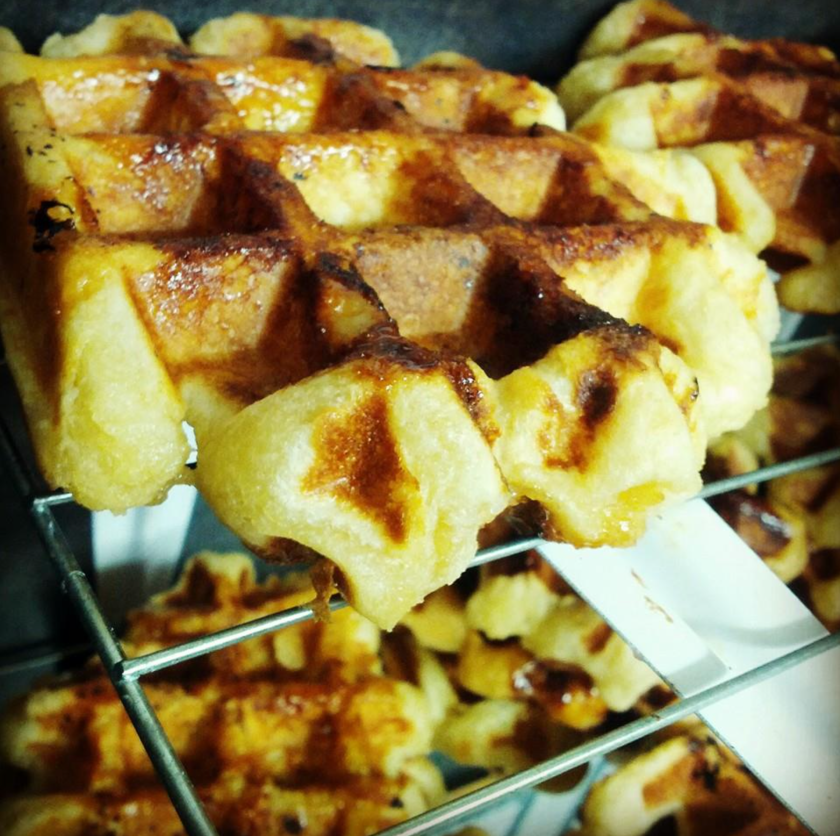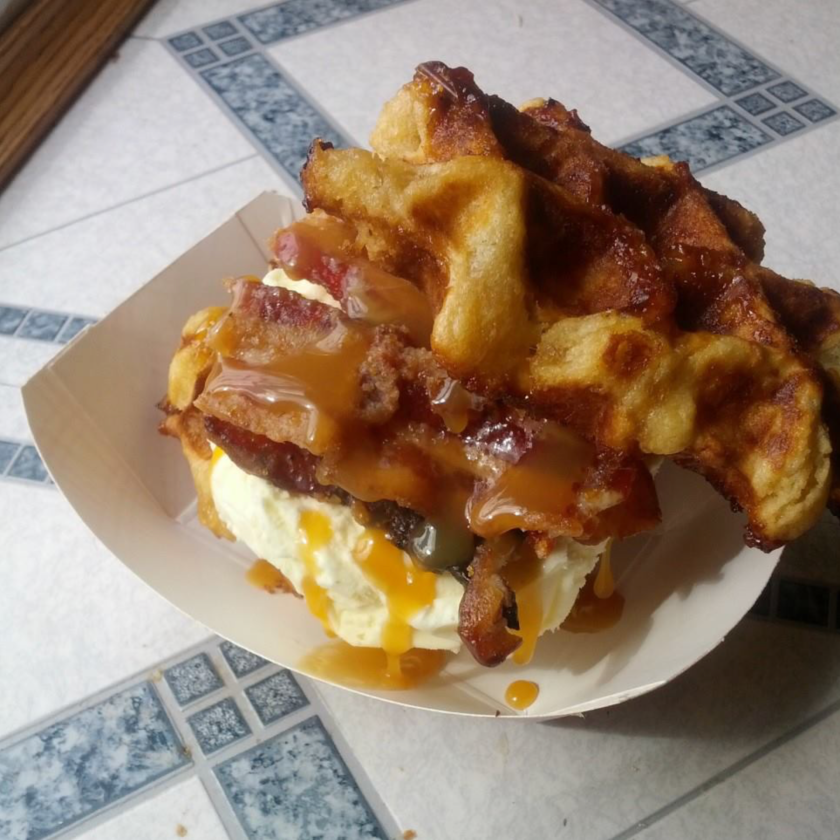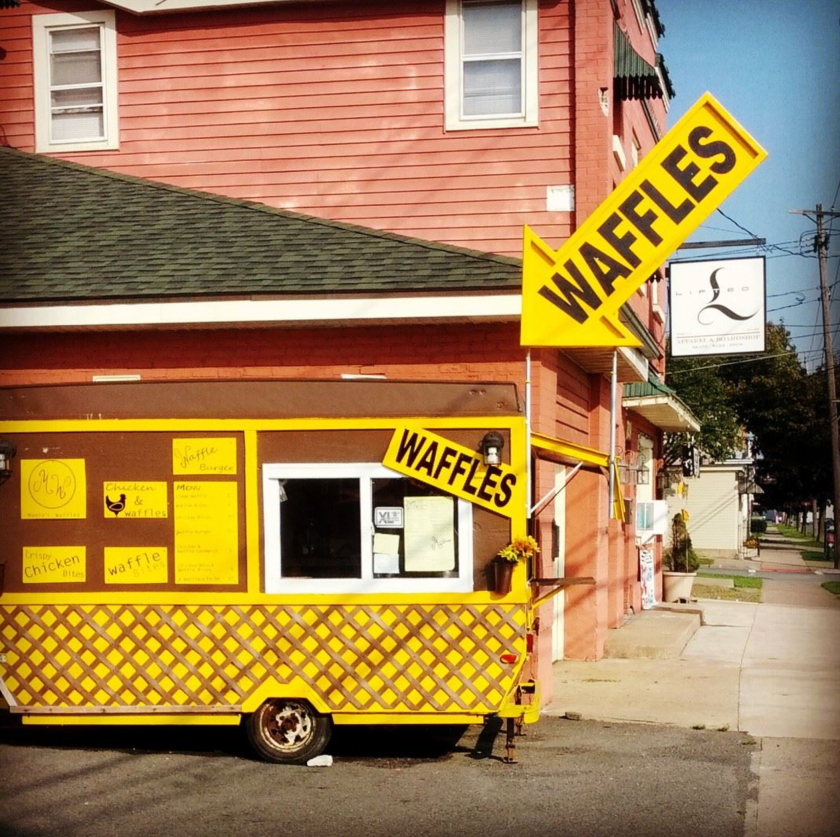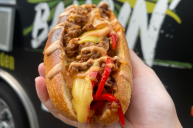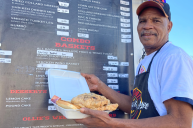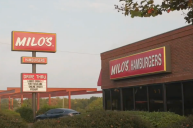I find few things more exciting than walking up to a food truck pod and perusing the options of made-to-order dishes, all impressively prepared in the confines of a small truck. Food trucks have been around since the Wienermobile back in 1936, a truck that drove around the country selling hot dogs. Since then, the trend has only increased in popularity, and nowadays there are countless food trucks found in every corner of the country.
To learn more about how to start and run a food truck business, I consulted my friend Rachel Puma, an entrepreneur who started her own chicken and waffles food truck business, Mamie's Waffles, with her brother. Her first piece of advice was one of encouragement, as she told me, "If you have an idea or vision, GO FOR IT!"
This points to the fact that the most important factors in following a dream are having a vision and deciding to follow it. Rachel advises self-reflecting before starting on any logistical steps, asking yourself why you want to start a food truck and writing it down. That way, you can remind yourself of your "why" if the going gets tough on your business venture. "Starting a food truck was one of the most exciting, creative learning experiences in life and business for me." Rachel shares, "I love having an idea in my head and seeing it come alive."
If the creativity and adventure inherent in such an endeavor appeals to you, here's how to start a food truck of your own in 6 simple steps.
Make a Business Plan

Getty Images/andresr
Having a well-thought out business plan is essential when starting a food truck business. This gives you organization and will help you to budget accurately, along with providing a document to present to potential investors if you need them.
Although some food truck entrepreneurs are able to start their truck from scratch, many need to find funding to get the business off the ground. Because of this, your food truck business plan needs to be detailed and compelling, showing potential investors exactly why your business will succeed and stand out from the rest.
A food truck business plan should include:
- Summary of your business- your goals, logo and identity
- Market analysis- explain who your target market is
- Management plan- explain employee organization and internal structure
- Service description- menu details
- Marketing plan- your advertising and marketing plan
- Funding- explain where you'll get your funding and how much you'll need to start your business
- Financial projections- your business' projected growth and income for the next 5 years
When it comes to starting your own food truck, your business plan and how well you execute it is vital. Juliane Grasekamp from www.bonnibakery.com has experience consulting with food truck owners on how to start and run their businesses, so she knows the keys to success. She says,
"Lots of people have the dream of running a food truck, but what makes the difference between a successful one and a failed one is often how the business is run. Just because it's a dream job doesn't mean you can forget about all the important things like stock takes, cash flow forecasts and staff management. You need to run a tight ship - get some really good systems in place for inventory management and budgeting and make sure you take the time to do it and stay on top of it all. So many incredible food trucks fail because the owners don't pay enough attention here."
Make a Budget

Getty Images/fizkes
Once you know the motivation behind your business idea, you can start planning it. The cost is one of the most common barriers to starting your own food truck business, and adding up the expenditures involved can feel discouraging.
When starting your food truck business, these are the things you'll need to acquire:
- A truck
- Cooking supplies
- Warming and food storage equipment
- Disposable serving equipment
- Janitorial/cleaning supplies
- POS (point-of-sale) system for ordering
If buying a new food cart or obtaining supplies is out of your budget, consider DIYing rather than buying everything new. You can either build your own food cart or search for a used one that can be refurbished to fit your business needs. As for your cooking equipment, try looking at used-goods websites like Craigslist, EBay, and Facebook Marketplace, or peruse your local Goodwill.
In Rachel's case, she and her brother started their food cart in 6 months, spending under $5,000 by building their own food cart trailer. She says, "Don't let certain fears get in the way; you will find what you need. You might have to get creative if you are on a budget. It may end up cooler than someone who spends $40,000-$70,00 on something."
Along with getting your business off the ground, you'll need to budget for the costs moving forward. Here are some of the expenses to consider:
- Ingredients
- Salary and benefits for employees
- Insurance
- Technology to operate your truck
- Marketing and advertising
Design Your Menu
The menu is the most important part of your food truck, so this step involves careful consideration and brainstorming. You may have a cooking speciality that you plan to build your menu around, or maybe you have a cuisine that you'd like to explore.
Rachel's inspiration for her menu was a dish from her childhood that fills her with happiness and nostalgia. She explains, "We grew up eating these amazing waffles when we went skiing. It was a dough based waffle with sugar that burst when it was cooked, leaving a delicious sweet coating on the outside of the waffle."
With her favorite childhood waffles in mind, Rachel began working on her waffles recipe, which took months of testing until it tasted just right. She also worked to find the perfect waffle iron that made the perfect shape and thickness she and her brother wanted for their waffles.
When asked about designing a menu, Rachel said,
"I recommend keeping it simple; a full menu is not needed for a food truck. Dial in on what your recipes are. Remember you don't have to be an amazing chef or cook to start a food truck. You can go with something new and creative or you don't have to reinvent the wheel. Take hot dogs for example. It's simple and easy and people want it when they see it, there is a reason they are popular."
Along with planning for a menu that you're passionate about, you'll need to make sure that your menu is a practical choice for your food truck. Plan to make food that can be recreated in large quantities, consistently tastes good, is served easily, is easy to eat, and travels well. You'll also need to decide whether you're going to prepare food ahead of time or if you can prepare the menu on-site.
As explained by Juliane Grasekamp, "less is more, people think they want lots of choice, but in reality they want a few limited options to choose from, otherwise they get overwhelmed. Narrow down to a few really killer options."
Make a Name and Logo
Your name and logo should be eye-catching and inviting to customers, along with giving them an accurate idea of what you offer. This part allows for total independence and gives you a chance to stand out from the competition. An iconic logo or picture on your truck will give customers something to remember!
You can either use an online logo generator, hire a professional, or try your hand at it. Just make sure that your name and logo represent the brand you're creating and go well with your menu.
Do Your Research
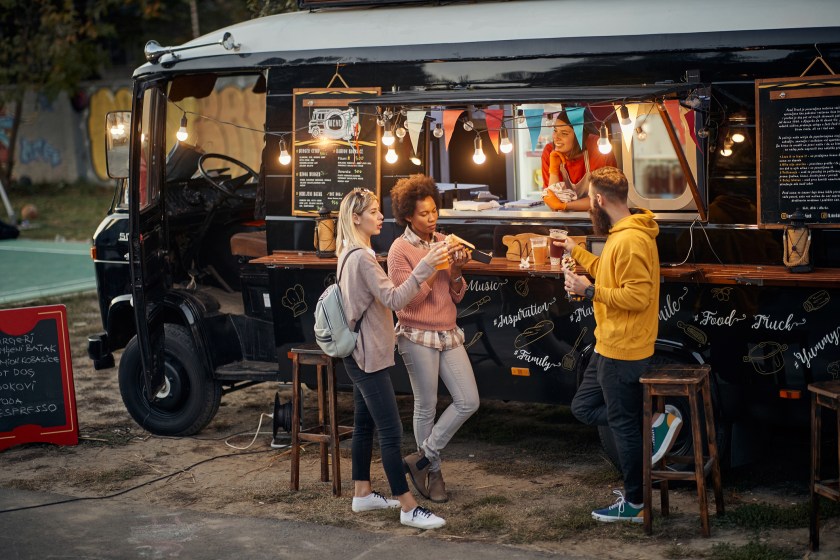
Getty Images/LuckyBusiness
Like in any new undertaking, research is essential in learning everything you need to know about starting a food truck. Rachel says, "Research is super important in food trucking and business in general. Find out what it's like having a food truck or restaurant in your area. Who's your competition? Who are your customers? Research what your county and city regulations are for food vending and mobile food vending."
If you plan on using your food truck business to travel, it's even more important to do your research about permits and rules. Each city and state has different regulations, so make sure to get everything you need before showing up to a new place ready to sell your food.
When doing your research, here are some important things to learn about your area:
- Existing food trucks in the area
- The demographic of the population and what kinds of food are popular
- The spaces where food trucks can park to sell their food
- The rules surrounding food trucking
- Permits and licenses you need for a food truck
For those looking for resources, Rachel says, "I recommend getting connected with your local SBDC (Small Business Development Centers). It's a free service and they are hosted at community colleges and universities in all 50 states."
Along with this, she advises, "Get connected online with food trucking facebook groups and try to find mentors or talk to someone who is in the restaurant/food business. Network in your community and outside...Build a network of people who are going to make entering the business world smoother, [more] fun and build a foundation for you."
Open Your Food Truck!
Once you've gotten through all of the theoretical and logistical steps of making a business plan, budgeting, and creating a menu, it's time to start building your business in the physical sense!
Buy the supplies and equipment we listed in the "make a budget" section, and put out a job position for employees if you plan to hire them. Marketing is also an essential step when getting to the final stages of opening your truck. To market your food truck, start researching pop-up events to be a part of, or simply find out the most successful food truck areas in the city to decide where to park. Consider planning a grand opening with discounts on your dishes to gain attention.
It's also a good idea to make a social media account or website so that customers can find out where you're located and what food you serve. As Juliane Grasekamp advises,
"Placing your food truck somewhere with lots of foot traffic is obviously important, but the next most important thing is a good marketing strategy. For food trucks, social media is essential. Post consistently, make people feel involved - they love seeing behind the scenes and feeling like they are part of the journey of a local business. Use it to post special menu items, advance notice of dates/times/locations of the truck and drum up as much engagement as possible to make customers feel involved."
Enjoy the adventure of food trucking and good luck!
